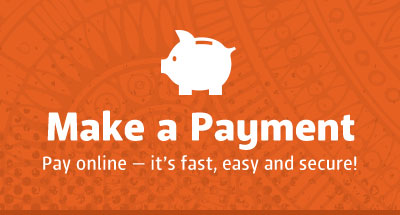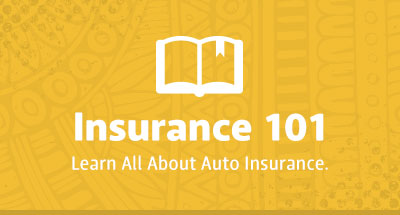What Are The Benefits of Buying or Leasing a Vehicle?
You have a lot of options to choose from when trading in for a new car. Whether it’s the choice between luxury and utility, sports sedan or family minivan, gas mileage versus pickup speed, there’s one choice above all that weighs on the rest: how exactly are you going to pay for it? Purchasing a new vehicle is a decision worth thinking over, with the commitment of how you’re going to go about paying off your purchase is essential to not only your bank account, but your future financial prospects as a car owner. It ultimately boils down to a choice between buying or leasing your next car. What does leasing entail? How does it differ from buying, how is it the same? Questions like these can be bewildering for even the most experienced of car owner, let along a first time buyer. Relax; we’ve got you covered. We’ve written a handy breakdown of the what and how behind buying vs. leasing, how much money you’re looking to spend vs. save between the two, and what kind of incentives you could reap from both.
Pros and Cons of Purchasing A Vehicle
However unlikely it may be that you don’t already know what it means to “buy” something but, for the sake of formality, let’s start with the basics. Purchasing a vehicle entails a direct transaction between you, the buyer, and the owner/distributor of said vehicle. You either pay the full price of the car, or you take out a monthly loan through your local bank or a credit union to compensate for your down payment. Either way, the point is clear — the car is all yours. The benefits of flat-out purchasing a vehicle are many, apart from obvious convenience and confidence that comes from ownership. You can modify your vehicle to your heart’s content, drive as much as you want, sell the car whenever you want or use the car as a trade-in towards your next purchase. Also, depending on how long you’re looking to keep your vehicle, buying on average would actually cost you less money than to lease (we’ll circle back to the benefits of leasing in a bit).
That said, purchasing comes with steeper investments in the short-term. You’ll have to put more money on a down payment to avoid owing more than the car is worth and your monthly car payments will be higher than that of a lease. As a result, more of your money will be tied up in the value of the vehicle, which will naturally depreciate more the longer you own it, though the exact rate of depreciation will depend on the choice of whether to buy a vehicle new or used (as we’ve written about in the past). And of course,being the owner of said vehicle, you’d be wholly responsible for all required maintenance and repairs once the warranty expires.
Pros and Cons of Leasing A Vehicle
Now that we’ve got the basics of vehicle purchasing out of the way, let’s talk leasing. Essentially, a lease is a contract where one party, the lessor, grants the the lessee (or tenant) the right to use a particular good for a period of time. During that time, the lessee will pay for the transfer of the right to use a fixed amount regularly. So, in regards to vehicle leasing, think of it as taking a car on an extended test drive that you pay towards owning or renting. While this might seem perilous at first, there are in fact incentives to this method of payment. You’ll get the ability to drive what is likely a better car, a luxury car, than what you would typically purchase for less money and lower monthly payments with low or no money down. Because the car is newer (dealerships seldom if ever offer leasing as an option for used or older models) it’ll be under factory warranty, you’ll pay lower initial repair costs in the event of an accident. You’ll pay less sales tax, all the while having fewer complications and hassles ending the lease or eventually transitioning to a newer vehicle. On top of that, unlike purchasing, you can return the car at any point in your lease.
However, as you can imagine, there’s negatives to this approach too. The first disincentive is also the most obvious: you don’t actually own the car until you’ve decided to pay for it in full. In addition, your mileage will likely be limited to around 12,000 miles a year, so it’s very important that you consider calculating just how much driving you plan on doing before agreeing to a lease. If you exceed this threshold you’ll be fined a considerable fee or to avoid this, you can purchase additional extra mileage on your vehicle, thought this fee won’t go towards your lease. The more you drive a used vehicle, the more susceptible it might become too excessive wear-and-tear. Where this might be annoying for purchased vehicle, these sort of conditions can be exorbitant and costly. Most drivers aren’t familiar with the particular nuances and legalese that leasing entails, so if you’re a first-time leaser, you’re likely to get confused with unfamiliar verbiage and jargon. As stated before, you can return the vehicle at any point in your lease, though not without fee if your driving needs were to change. Finally, and this is the big one: You will likely pay more for a leased car, in the long run, than if you were to have purchased a car and kept it for years. The justification behind this simple: When you’re buying a vehicle, you’re buying that vehicle as a fixed asset or product. But when you’re leasing a vehicle, you’re not really buying the vehicle—- you're purchasing the usage of the vehicle as a service while paying incrementally towards the potential of ownership.
Paying vs. Leasing: Which is The Right Fit For You?
With all that said, herein lies the question: which method of payment would work the best for you. Let’s reiterate the final point on the difference between buying and leasing: When you’re buying a vehicle, you’re purchasing that vehicle as a fixed asset. When you’re leasing a vehicle, you're essentially purchasing the usage of the vehicle as a service within a predetermined mileage range while paying towards the potential of purchasing said vehicle in the future. In the end, it all depends on what you want to get out of your next car purchase, how much you intend to drive, how often do you see yourself trading in for a new vehicle, what kind of vehicle do you see yourself driving, and how much disposable income you have available. If you’re planning on having your vehicle for couple years, consider yourself firmly middle-class with an average income, plan on making making incremental improvements and repairs as needed, and want to go the straight and simple route of owning a vehicle, then the choice to purchase a vehicle rather than lease is obvious.
With all that said, herein lies the question: which method of payment would work the best for you. Let’s reiterate the final point on the difference between buying and leasing: When you’re buying a vehicle, you’re purchasing that vehicle as a fixed asset. When you’re leasing a vehicle, you're essentially purchasing the usage of the vehicle as a service within a predetermined mileage range while paying towards the potential of purchasing said vehicle in the future. In the end, it all depends on what you want to get out of your next car purchase, how much you intend to drive, how often do you see yourself trading in for a new vehicle, what kind of vehicle do you see yourself driving, and how much disposable income you have available. If you’re planning on having your vehicle for couple years, plan on making making incremental improvements and repairs as needed, and want to go the straight and simple route of owning a vehicle, then the choice to purchase rather than lease is an obvious one. Then again, if you have the disposable income to afford the luxuries of a leased vehicle, plan on switching vehicles multiple times within the next two years, if not the next year, and plan on driving within a finite area or mileage threshold, then leasing is viable option to meet your needs.






